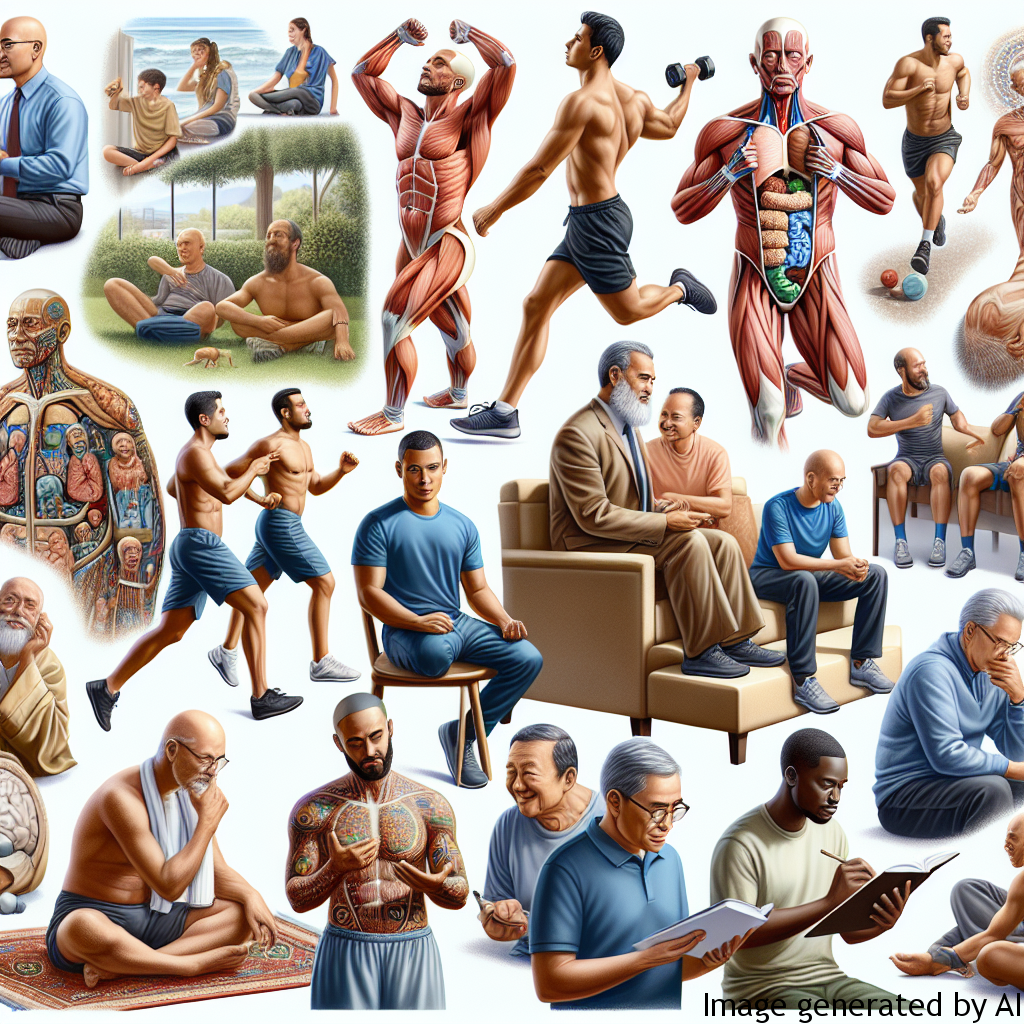Introduction
Sex and bone health are intricately interlinked, primarily through the impact of sex hormones on bone metabolism. Both estrogen and testosterone play crucial roles in maintaining bone health. At the same time, the societal construct of gender roles and expectations can also significantly influence men’s psychological health, which indirectly correlates to their physical health.
Gender Expectations and their Influence on Men’s Psychological Health
The Societal Pressure of Masculinity
There is often immense societal pressure on men to conform to traditional masculinity norms, which favor traits such as strength, stoicism, and a significant emphasis on physical health. This narrative, coupled with the stereotypical image of a ‘strong, unbreakable man’, can exacerbate mental health issues in men, making them less likely to seek help.
Impact on Bone Health
Such psychological distress can indirectly bear down on men’s bone health. Poor mental health is linked with various risk behaviors, like substance abuse, which weaken bone density. Besides, the disruption of emotional well-being can lead to behavioral changes, which might negatively impact dietary habits and physical activities, both critical for maintaining bone health.
Examples of How Gender Roles Can Influence Men’s Life
Men, often conditioned to suppress emotions, may disregard the early symptoms of deteriorating bone health, such as subtle joint pain or decrease in grip strength. Such gender-related expectations might also prevent men from seeking regular health checkups and timely treatment for bone disorders. In terms of lifestyle and diet, the masculinity stereotype of heavy alcohol consumption and high-protein diet lamentably influences bone health. Both hinder proper calcium absorption, fundamental in maintaining strong bones.
Tips for Improving Psychological Health Considering Gender Roles
Challenging toxic masculinity norms is pivotal in promoting better psychological and bone health amongst men. Men should be encouraged to express their feelings freely, seek help when needed, and prioritize self-care. Regular exercise, adequate calcium and vitamin D intake, and maintaining a healthy lifestyle – both physically and mentally – are essential steps in this direction. Gender-sensitive clinical practices and health communication can also emphasize improving men’s bone health.
Conclusion
Socially constructed notions of gender can significantly influence men’s psychological health, which, in turn, can impact their bone health. By fostering an environment that allows men to seek help and take care of their health without societal pressure or stigma, we can ensure better overall well-being and stronger, healthier bones.

